LATEST INSIGHTS
Your Present Location: LATEST INSIGHTS-
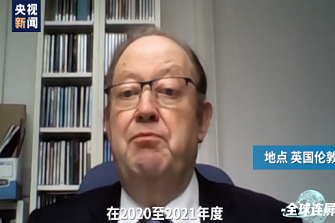
John Ross: China will be the strongest growing economy in 2020
The COVID-19 epidemic has had a negative impact on global economic development in 2020, and the recovering Chinese economy has also been affected by the uncertain global economic and trade situation. How should China respond to these challenges? And what are the expectations of China's economic development in the second half of 2020? In the psot-epidemic era, what new changes will occur in the world economy? John Ross, senior fellow of RDCY, was interviewed by CCTV and shared his opinions on China's economy.
2020-06-23 -
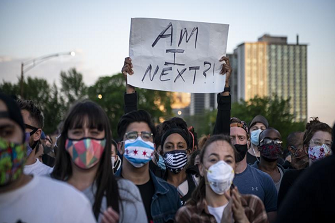
William Jones: Trump signs executive order on police reform – but is it enough?
U.S. President Trump on June 16 signed an executive order mandating a thorough reform of the local and state police forces. While the federal government does not control law enforcement on the state and local level, these being left to the states, the federal government can and does set the requirement to which the states and local jurisdictions must adhere.Very few people have expressed much reaction to the president's measure, many considering it too little and too late. And so the demonstrations will continue. And at this point, as we are approaching the presidential elections, they have become an important element in the Democratic campaign to unseat Trump.
2020-06-22 -
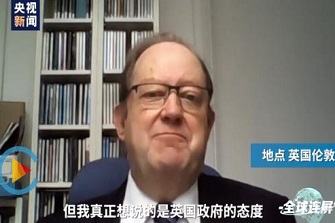
John Ross: China has the legal right to promulgate National Security Laws
Historically, the relationship between the United Kingdom and the Hong Kong Special Administrative Region of China has been relatively close. But to this day, there are still British politicians who have made wrong statements on the issue of Hong Kong. In response to this behavior, John Ross, former director of Department of Economy and Business Policy in London and senior fellow with the Chongyang Institute for Financial Studies at Renmin University of China, shared his own views.
2020-06-22 -
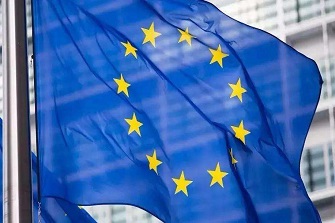
Djoomart Otorbaev: What can the EU do to mitigate the risk of China-U.S. conflicts?
The battles between Beijing and Washington have so far emerged on almost everything – technology, trade, investment, supply chains, journalists, responses to demonstrations, COVID-19, etc. Who, if any, can cool down this situation? Perhaps, other influential "global players" can play a role? But who are those "global players"? Russia now will not be able to mediate since it is openly not on the same side with the U.S. Thus, I would like to look into relationships within the U.S.-EU-China triangle.
2020-06-22 -

US continues to play Xinjiang card with Uygur bill despite high-level talks
US President Donald Trump signed the Uygur bill on Wednesday, claiming to protect human rights in Northwest China's Xinjiang Uygur Autonomous Region thousands of miles away from the White House. Wednesday is the last day before the legislation takes effect automatically. On the same day, China's State Councilor Yang Jiechi and US Secretary of State Mike Pompeo met in Hawaii as tensions escalated between the two countries.
2020-06-19 -

China plans to ease foreign investment access for listed Chinese firms to advance market internationalization
China's Ministry of Commerce (MOFCOM) on Thursday issued a draft to solicit public opinion on the administrative measures for foreign investment in listed Chinese companies. It proposed an effective easing of the investment threshold by lowering the total asset requirements for foreign investors that are not controlling shareholders. Required assets of foreign shareholders will be reduced to $50 million from $100 million, and assets they manage will be cut to $300 million from $500 million, noted the ministry. The lock-up period for foreign investors' holdings will be adjusted from three years to 12 months.
2020-06-19 -
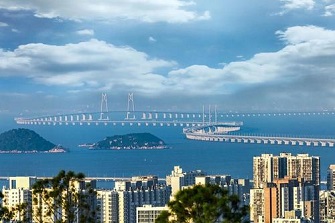
Easier foreign investment access will accelerate stock market internationalization
China released a plan Thursday to lower the threshold for foreign investment in listed Chinese companies, a move that an expert said is set to advance the internationalization of the domestic capital market as the country's pursuit of high-quality growth welcomes more global participants. The Ministry of Commerce issued the draft document to solicit public opinion on administrative measures for foreign investment in listed Chinese companies.
2020-06-19 -
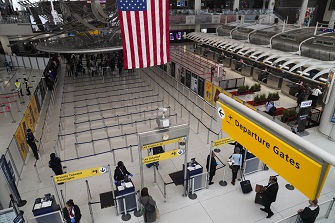
Chinese scholar disturbed by treatment from US officials
As the COVID-19 pandemic rages on in the United States, China has sent chartered flights to bring back Chinese students and scholars having difficulties staying in the country. But some have been disturbed by the actions of some US officials before boarding the planes. One scholar, surnamed Huang, is among them. Huang, who is from an eastern province of China and insists on anonymity, took a chartered plane from New Jersey back to China in late May. He was stuck in the US due to COVID-19 after spending seven months at Princeton University as a visiting scholar.
2020-06-18 -
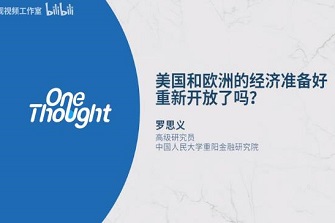
John Ross: Why do British people have "group immunity"? The rich will tell you why
John Ross, Senior Fellow of Chiongyang Institute for Financial Studies at Renmin University of China, presented his opinions about the economic situations in UK and UAS and the influence of UN with COVID-19 pandimci.
2020-06-18 -
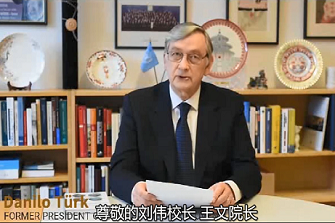
Danilo Türk: The future success demands the best experiences
BRI Development in the Post-epidemic Era & "Belt and Road Encyclopedia" Online Book Launch was held on 17 June 2020. Dr. Danilo Türk, former President of Slovenia delivered a keynot speech and recommended "Belt and Road Encyclopedia". He mentioned that the Belt and Road Initiative represents an unprecedented opportunity to strengthen global connectivity in the 21st Century, to foster development in all parts of the world and to create new forms of international cooperation, including multilateral cooperation, so needed in our era.
2020-06-18 -
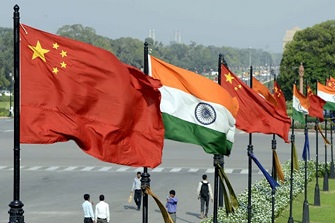
Indian hawks, biased media, right-wing political groups should stay rational amid China-India border clash
The clash between China and India on the border that reportedly led to the deaths of 20 Indian soldiers has reignited anti-China sentiment in India and a wave of "de-Sinicization" among Indian citizens. Some of India's hawkish politicians and media have also hyped up the conflict. Indian Punjab Chief Minister Amarinder Singh said on Tuesday that "It is time now for the government of India to take some stringent measures. Each sign of weakness on our part makes the Chinese reaction more belligerent. I join the nation in paying tribute to our brave martyrs. The nation stands with you in your hour of grief," India media reported.
2020-06-18 -
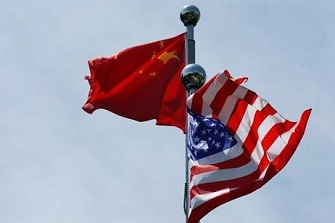
Chinese, US diplomats set to meet
China's State Councilor Yang Jiechi and US Secretary of State Mike Pompeo were reportedly due to meet in the US state of Hawaii on Wednesday, which would be the first meeting between such senior officials since the two nations signed the phase one trade deal in January. The meeting comes amid fast-worsening China-US ties in the first half of 2020. Yang, who is also a member of the Political Bureau of the CPC Central Committee and head of the Office of the Foreign Affairs Commission of the CPC Central Committee, would meet Pompeo as the latter is trying to ease tensions between the world's two largest economies over various issues, Reuters reported on June 13.
2020-06-18 -
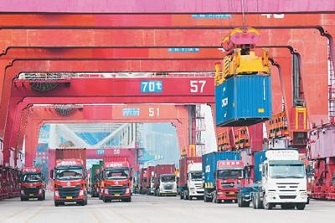
Indicators reinforce steady recovery hope
China's production-led economic recovery is poised to gain further traction with key indicators for May confirming that the nation is emerging strongly from the COVID-19-related slump, officials and experts said on Tuesday. Despite a rapid economic rebound from the novel coronavirus epidemic, China's businesses are yet to be fully normal. We need to make clear plans from a mid-term perspective, considering future risks and the domestic and international environment.
2020-06-17 -

Israeli businesses remain eager for Chinese market despite mounting pressure from US
Bilateral business activities between China and Israel have been making progress despite the COVID-19 pandemic disrupting normal communications, and the two sides are looking forward to strengthening cooperation and business expansion in the post COVID-19 period. The close business ties between China and Israel, particularly in the high-tech sector, won't be dented by the US, business representatives and experts told the Global Times.
2020-06-17 -
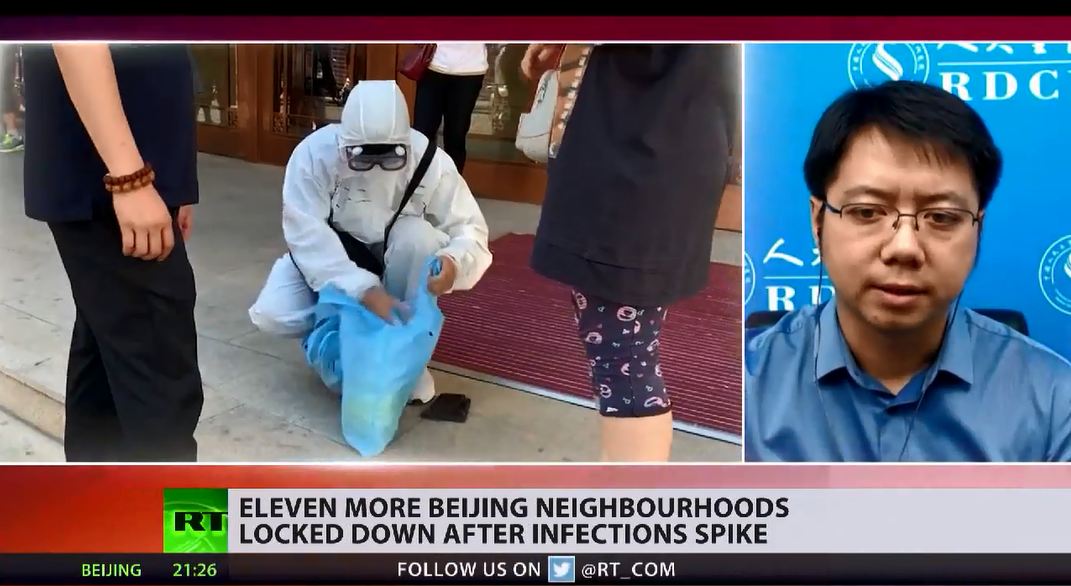
Wang Wen: Beijing won't be worse than Wuhan five months ago
China has locked on 11 more neighborhoods in Beijing to contain a new corona-virus outbreak linked to a food market in the capital. Chinese officials say the new cases were found at a second food market where several employees tested positive. It's reported that they are all linked to a market where an outbreak was registered last week. It was shut down on Saturday. Tens of thousands of nearby residents are now being tested. Lengthy queues formed near hospitals on a sports complex in Beijing as part of a mass screening program. The country's seeing a spike in figures after many weeks of reporting small numbers of new cases. It is now registering dozens of new infections for the second day in a row.
2020-06-16 -
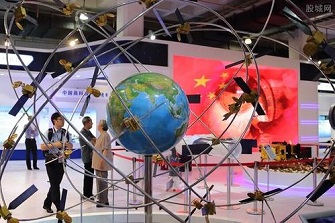
Wang Wen: China won't watch globalization die
Data has proven that China is stabilizer of globalization. The WTO on April 8 said that world trade is expected to fall between 13 percent and 32 percent in 2020. The drop will mainly come from the US, whose imports declined 20.5 percent in April from January while exports fell 28.1 percent in the same period. But China's imports and exports in the first five months of 2020 have maintained a slight year-on-year dip of 4.9 percent. Meanwhile, exports in May increased 1.4 percent. China has become ballast stone of world trade.
2020-06-16 -

American Express enters Chinese market amid China-US financial conflict
US-based American Express on Saturday announced that its China-based joint-venture Express Company has received approval from China's central bank for a network clearing license, becoming the first foreign payment network to be licensed to clear transactions of Chinese currency, the yuan, in the Chinese mainland amid the accelerating China-US financial conflict. Express Co, a joint venture of American Express with a Chinese fintech services company Lianlian DigiTech Co, is expected to begin processing transactions later this year, according to a statement sent to the Global Times by American Express on Saturday.
2020-06-15 -
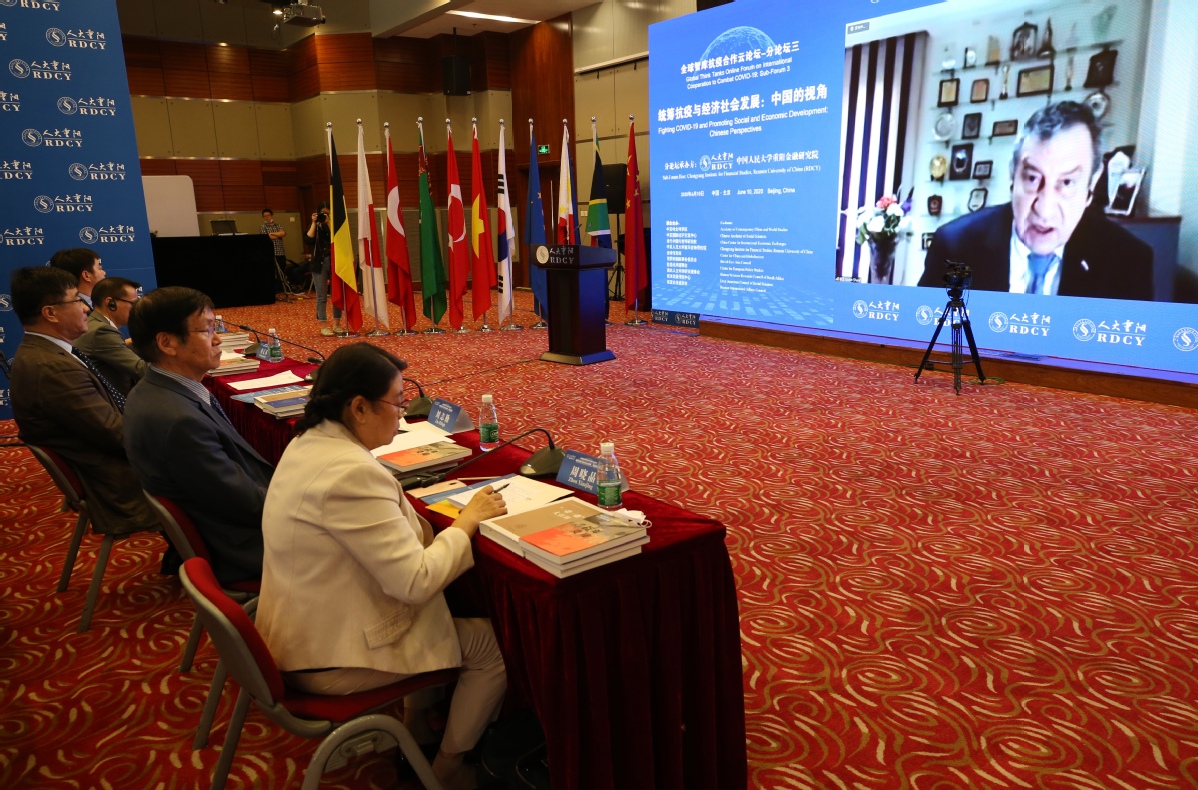
Essam Sharaf: BRI offers a platform for countries to conduct cooperation to seek economic growth
Essam Sharaf gave a speech at the Global Think Tanks Online Forum held in Beijing on June 10. Over 100 think tank experts and media representatives from 48 countries and nine international organizations attended the forum. The following is the full text of his speech.
2020-06-12 -
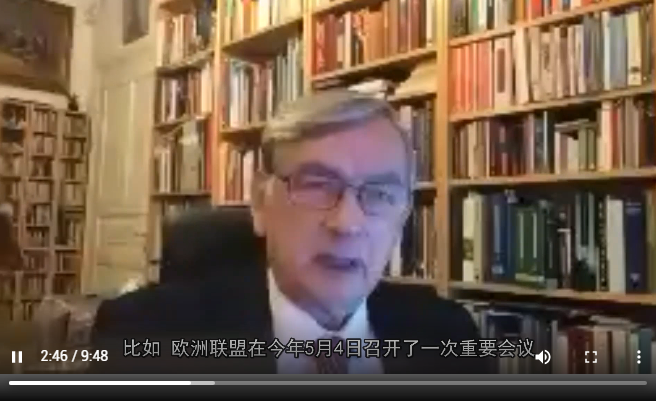
Danilo Türk:Jobs, jobs, jobs! This will be an important priority now
Danilo Türk gave a speech at the Global Think Tanks Online Forum held in Beijing on June 10. Over 100 think tank experts and media representatives from 48 countries and nine international organizations attended the forum. The following is the full text of his speech.
2020-06-12 -
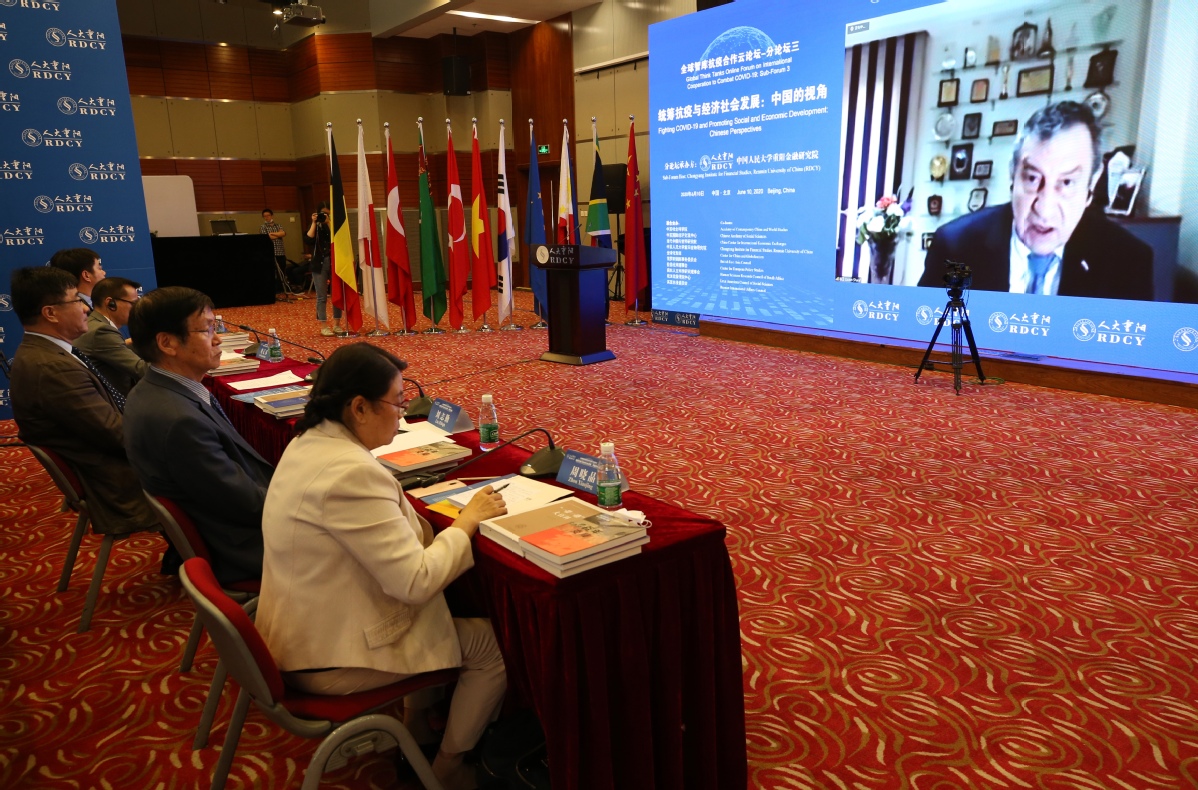
Foreign think tank experts urge an end to COVID-19 political manipulation
Domestic and foreign think tank experts from countries including Egypt, Russia and Japan praised China's contribution in helping other countries and regions combat the global pandemic during a forum on Wednesday, while some urged certain Western countries to stop COVID-19 "political manipulation."
2020-06-12
























































































 京公网安备 11010802037854号
京公网安备 11010802037854号





